Enough on our plate.
How what we eat harms the environment.
By Lauren Kennedy
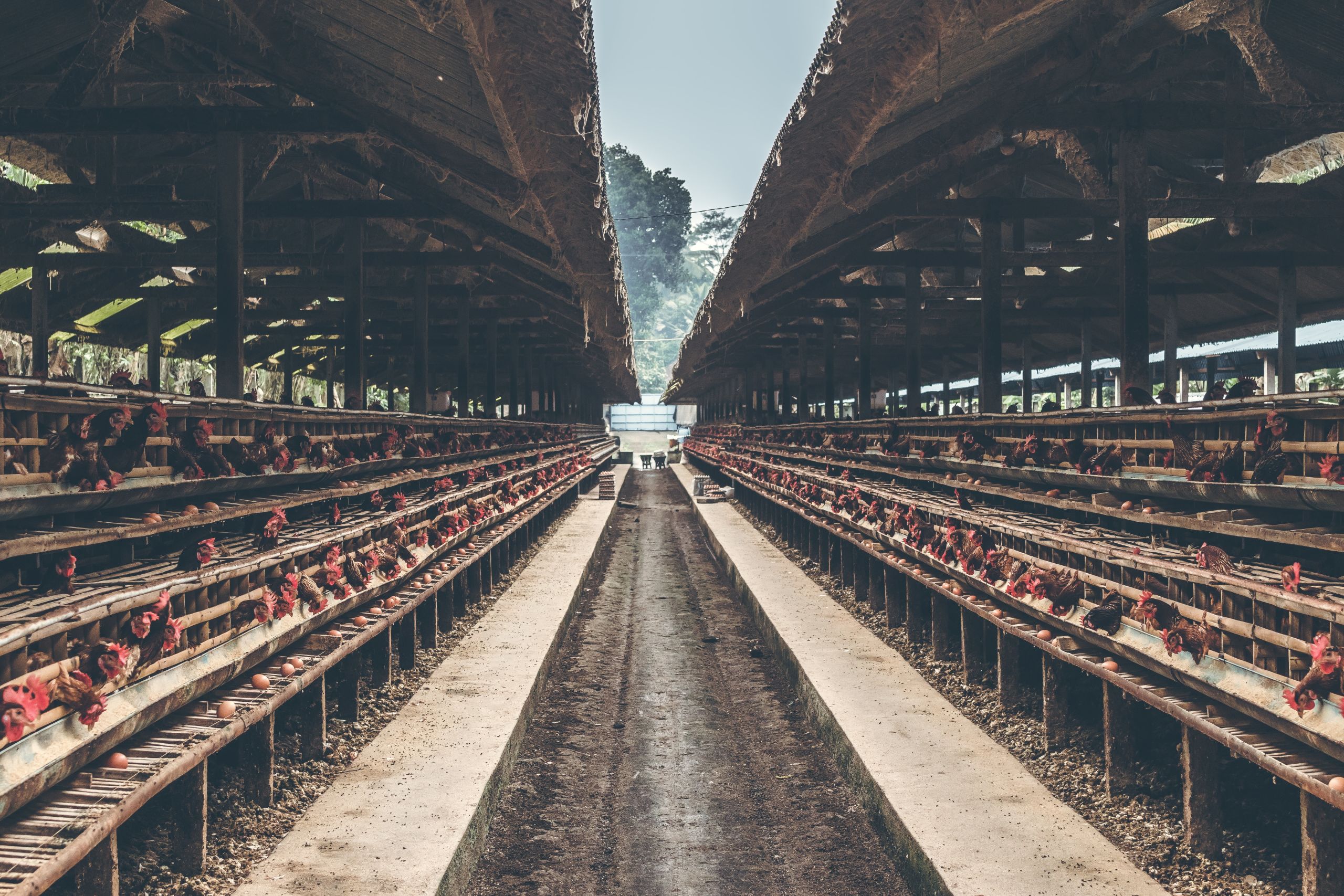
It is hard to escape the dominance and intensity of the meat industry. Whether it’s the constant stream of adverts on the television showing loins, joints and limbs for sale, the billboards and buses advertising fast food outlets or simply coming home after a long day to a flurry of takeaway leaflets from kebab shops. It is everywhere, and it is inescapable.
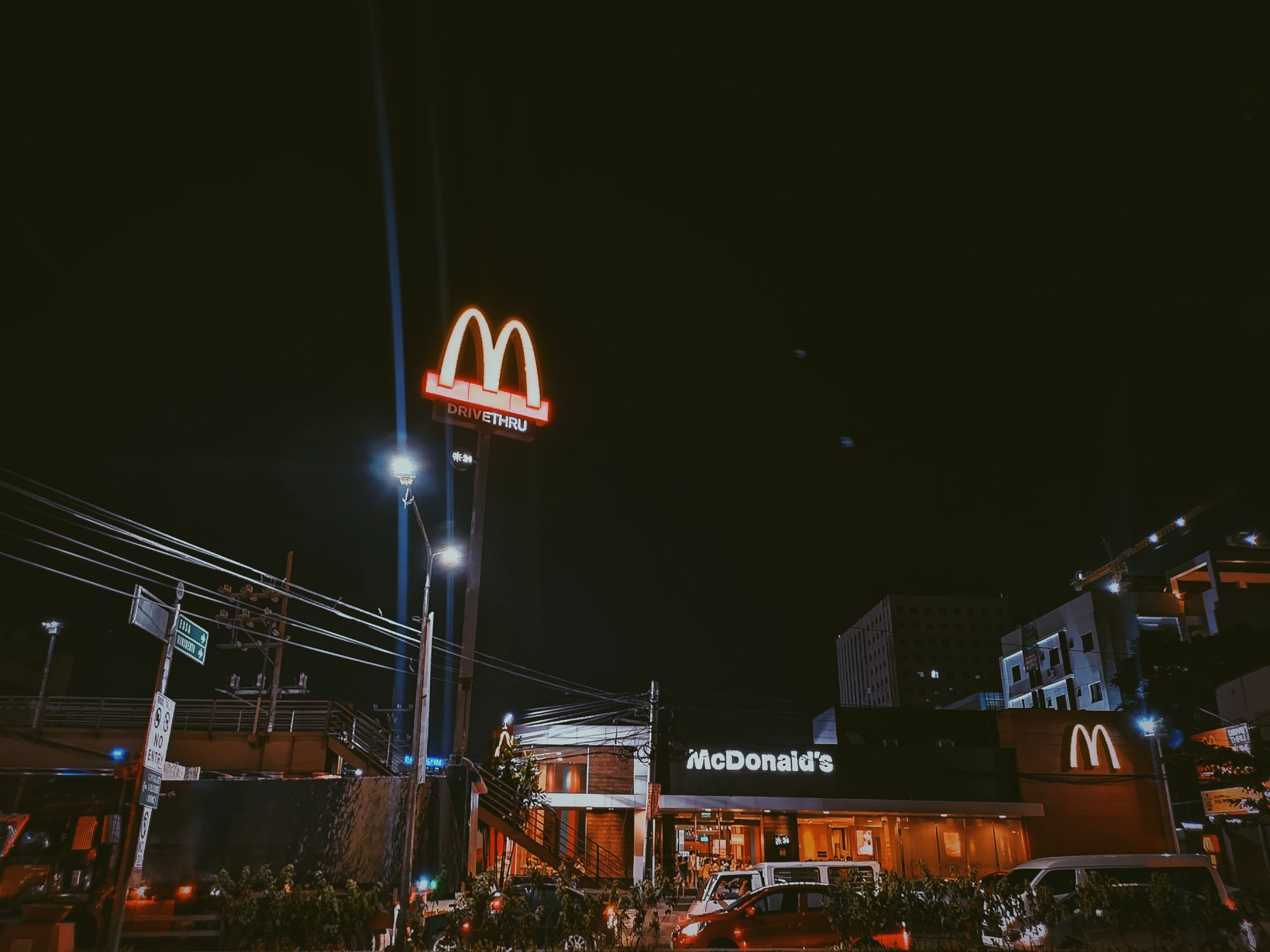
With the global population nearing 7.7 billion and an estimated 110 million tons of meat consumed annually, predominantly in the West, it is hardly surprising yet shocking all the same, that nearly 80 billion land animals per year are killed for food.
Animals Slaughtered:
0 marine animals
0 chickens
0 ducks
0 pigs
0 rabbits
0 turkeys
0 geese
0 sheep
0 goats
0 cows and calves
0 rodents
0 pigeons and other birds
0 buffaloes
0 dogs
0 cats
0 horses
0 donkeys and mules
0 camels and other camelids
The Animal Kill Counter by ADAPPT shows how many animals are being slaughtered for meat by the second around the world. Although this chart may represent the land animals that lose their life by the second, it does not represent Fish, if you keep your eyes on the chicken count - the amount of fish we slaughter by the second is 16 times as much.
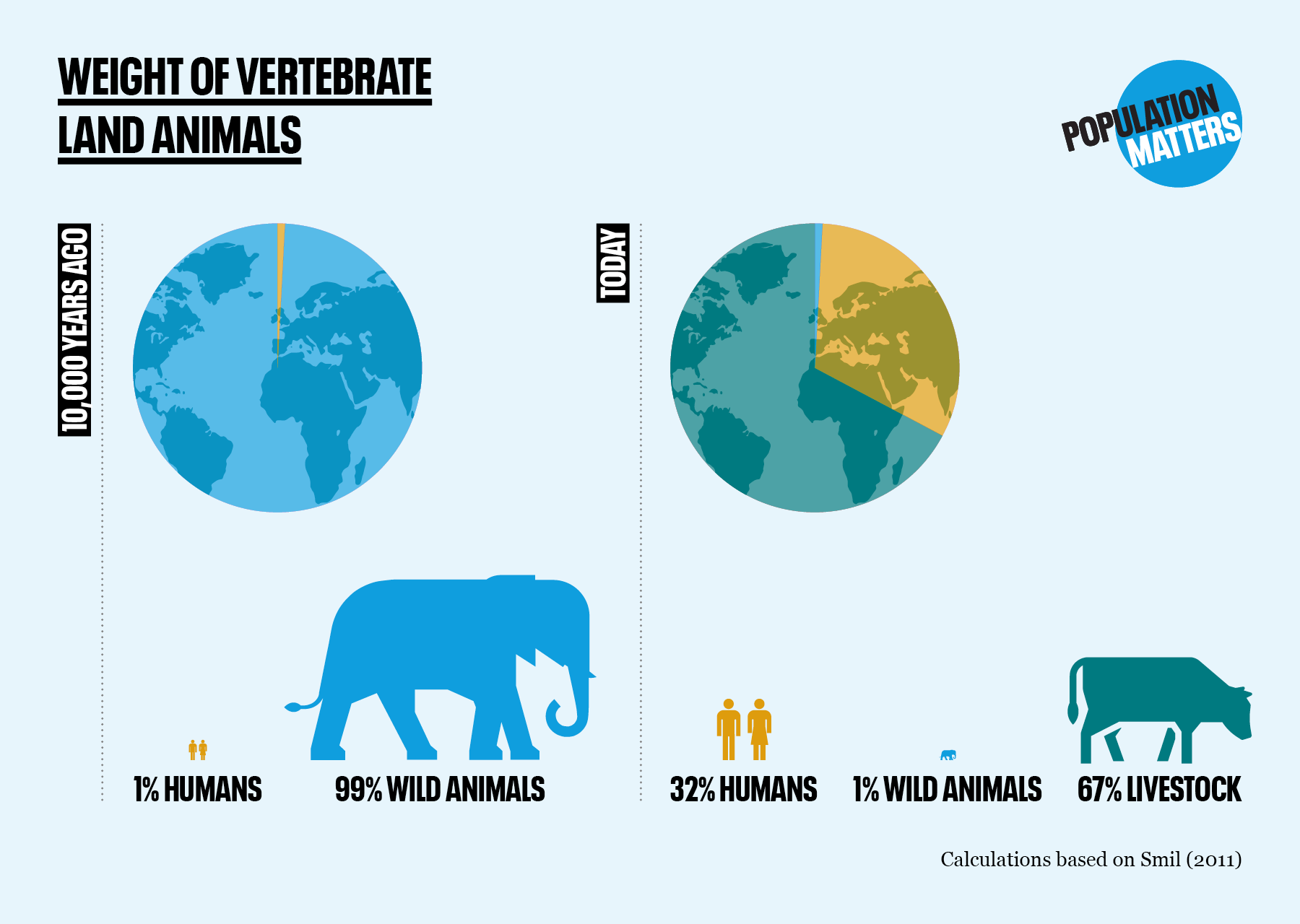
67% of the worlds population is livestock - to feed the 32% humans. Only 1% of wild animals. Credit: Population Matters
67% of the worlds population is livestock - to feed the 32% humans. Only 1% of wild animals. Credit: Population Matters
The Global animal farming industry creates more greenhouse gases than the whole transport sector combined and out of all greenhouse emissions from agriculture, 70% of these are from rearing livestock. It is the second largest contributor to global warming after oil. Rearing animals for meat take up 1/3 of arable land globally, meaning more water is used and 75% of all soy produce is fed to livestock, to put it into perspective – if this mass produce was shared out through the developing world, it would end world hunger.
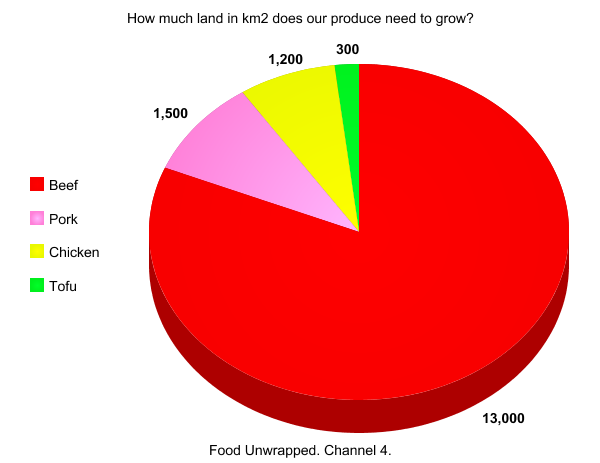
Chart: Lauren Kennedy Data: Channel 4
Chart: Lauren Kennedy Data: Channel 4
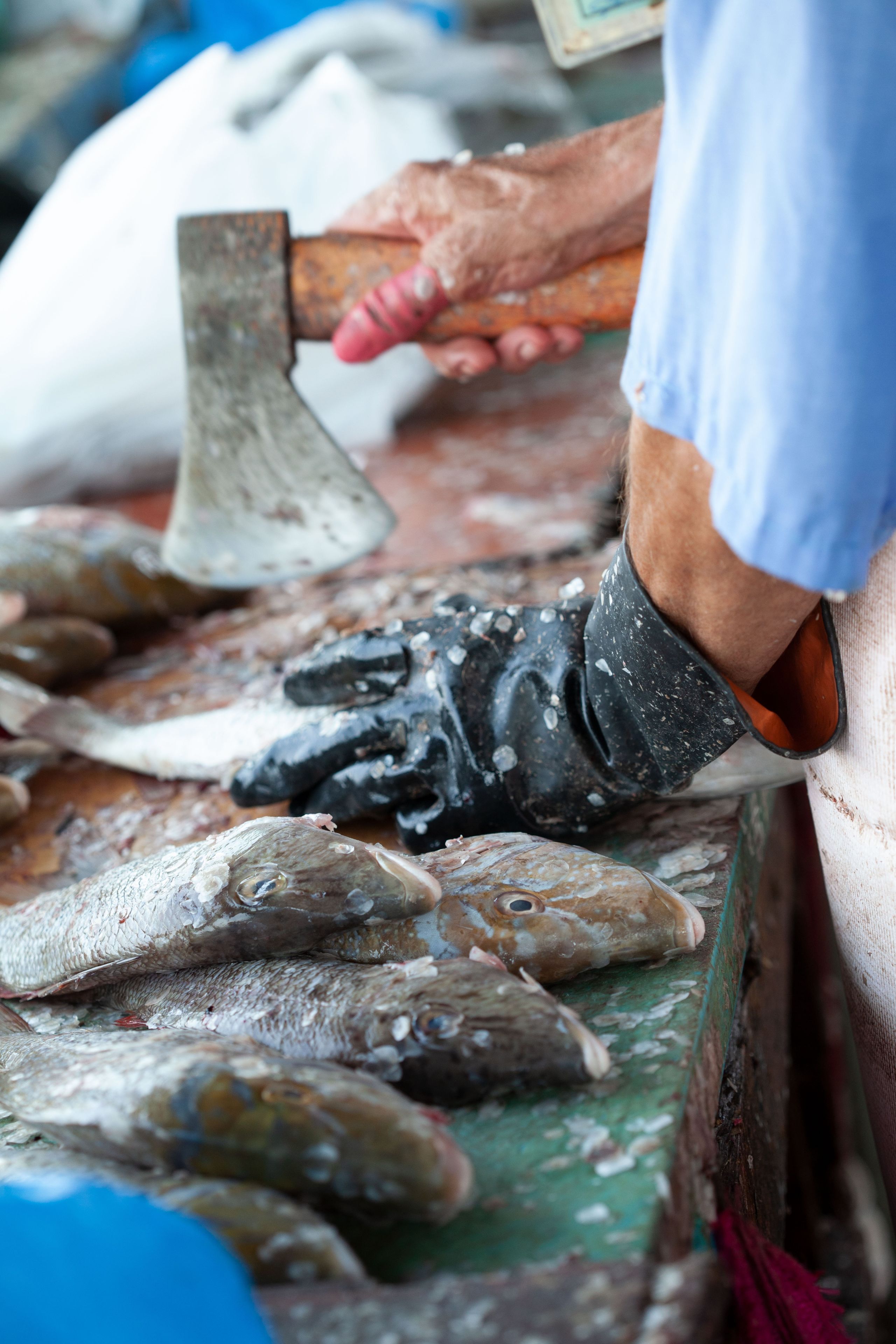
Credit: Axel Breuer
Credit: Axel Breuer
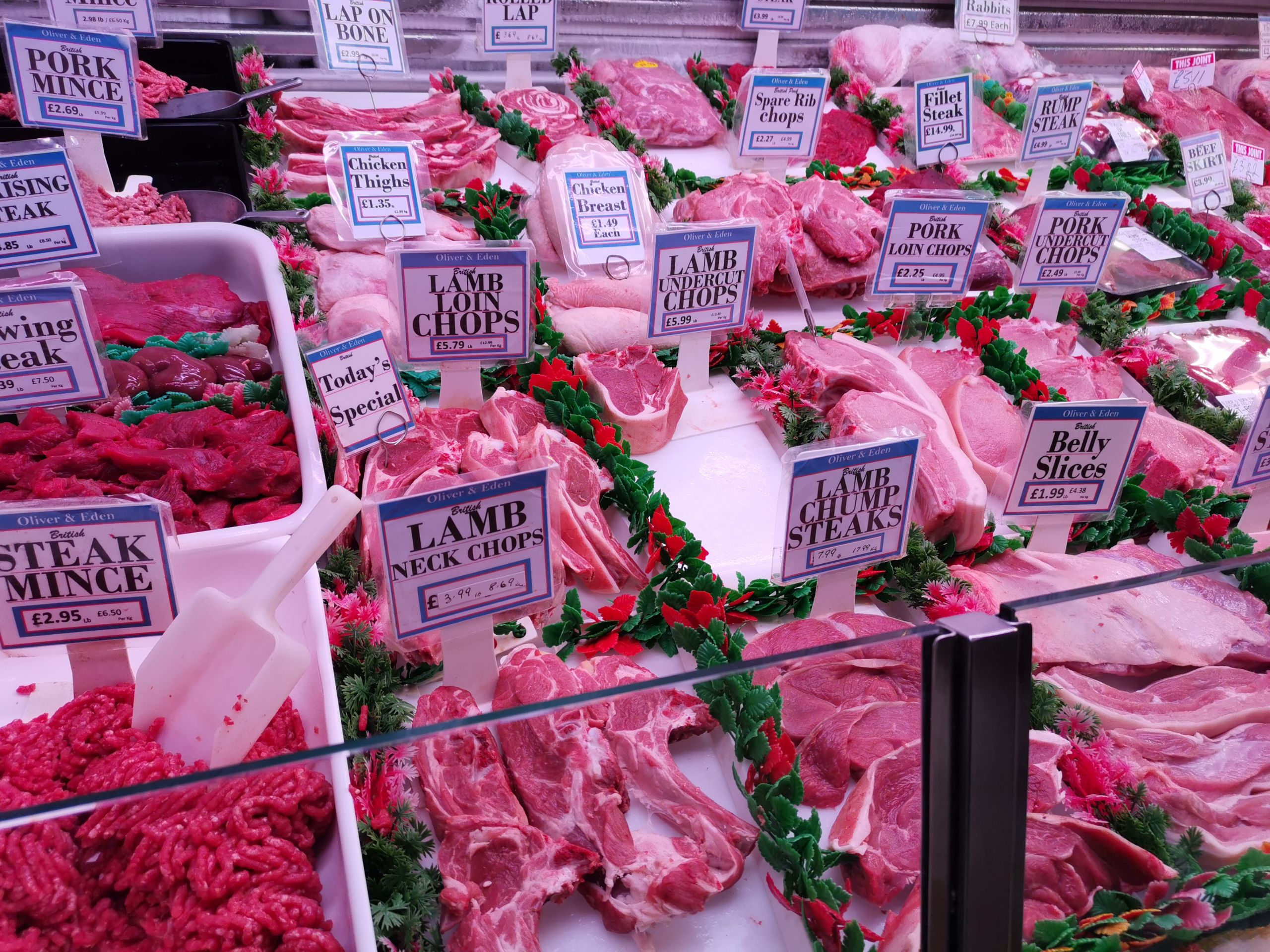
Credit: Lauren Kennedy
Credit: Lauren Kennedy
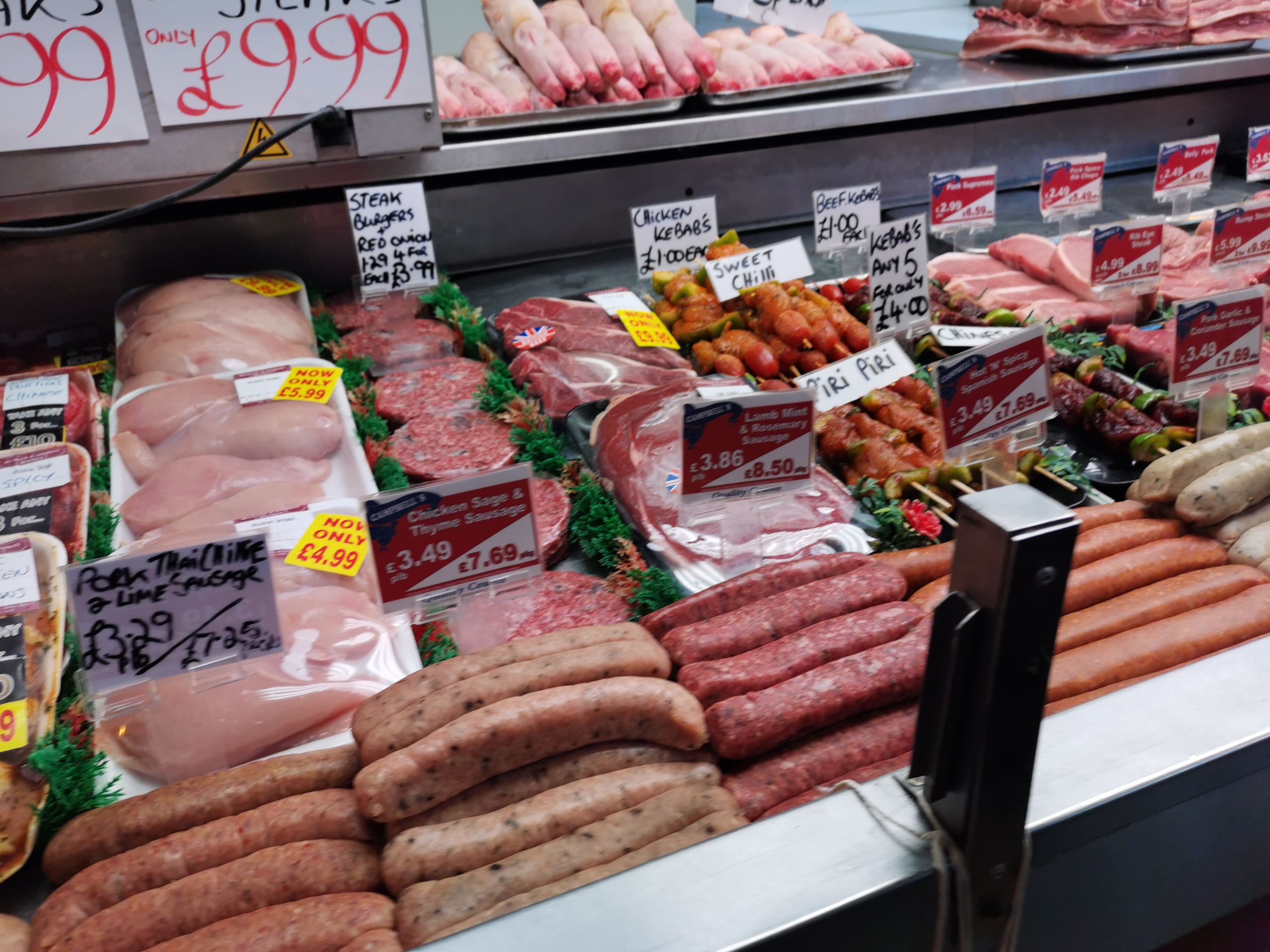
Credit: Lauren Kennedy
Credit: Lauren Kennedy
Dr Sailesh Rao is the Founder of Climate Healers and Executive Producer of Cowspiracy(2014).
“Animal Agriculture is the leading cause of a whole host of environmental ills including ocean depletion, soil depletion, desertification, ocean dead zones, tropical deforestation, mass species extinction and climate change and since farmed animals are prioritized over poor, hungry people in our current economic system, animal agriculture is also responsible for a whole host of social ills”
We are already living in the sixth mass extinction, losing animals at a rate of 1,000 - 10,000 times the natural rate yet nothing about our farming culture is ‘natural’ and the thousands of hectares of land being used to grow crops to feed livestock is forcing other species from their natural habitat and adding to this already frightening statistic. When you consider that the average meal lasts ten minutes and we exist in a mostly fast paced, fast food society, is it worth the environmental and ethical damage for nothing other than our tastebuds?
“I propose that we all scream from the rooftops to raise awareness on the life-threatening implications of this culture of normalized violence. In a stark choice between mass extinction including our own and the evolution of our species to a ‘Caretaker’ role instead of ‘Top Predator’ role, I think that the vast majority of human beings will actually choose the latter” Dr Rao said.
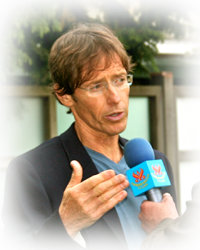
Credit: Comfortably Unaware
Credit: Comfortably Unaware
Dr Richard Oppenlander is an activist, lecturer and author. His first book Comfortably Unaware explores the impact food choice has on the environment and the cruelty inherent in all types of animal agriculture. He warns that we will be extinct one day if we do not change our diets.
“the consequences of continued animal agriculture, in combination with human population growth is that species of animals will continue to be lost at escalating rates, including at some point in time and in time not too distant, our own human species because those life systems that we take for granted and that are provided for us by Earth will no longer be able to support us. The loss of those life supporting systems through Global Depletion that are critical to our survival (loss of land/health of oceans/sea life/extinction/biodiversity) means we are essentially killing our planet and in doing so, we will perish”
There are also many major health concerns surrounding the consumption of meat, red meat in particular. The World Health Organisation (WHO) has categorised processed meat as a Carcinogenic which is basically a cause of cancer in the same band as tobacco.
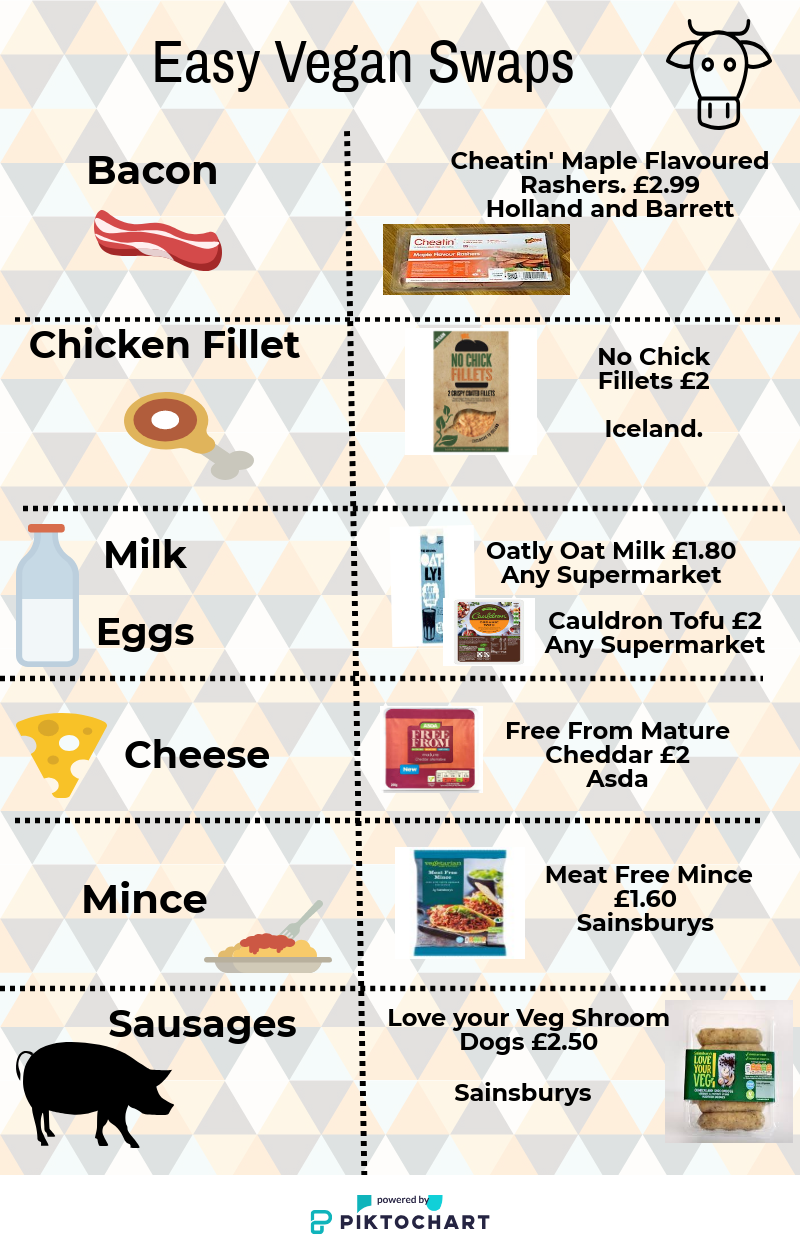
Credit: Lauren Kennedy
Credit: Lauren Kennedy
“Eating meat increases the risk of all the big killers: heart disease and stroke, diabetes, bowel cancer and other cancers. Meat is one of the main causes of obesity along with dairy foods. It offers no protection for bone heath and the animal protein in meat and dairy is linked to weaker bones. It is the main cause of food poisoning and factory farming is to blame for the emergence of antibiotic-resistant superbugs. It’s hard to see why anyone would eat meat after becoming aware of the facts.”
Dr Justine Butler, Author of Vivas Envirocidal campaign said: “in terms of health, meat does not contain any nutrients that you can’t find in healthier plant foods. Obviously less meat is better than no change but cutting meat out altogether is the best option for our health and our planet.”
She continued. “Farmed animals are not allowed to reproduce naturally so as demand for meat drops, fewer and fewer animals will be bred. So, we will not be overrun with millions of farm animals as some people seem to imagine. In a vegan world animals would not be kept for profit and greed, but would be allowed to exist in their natural state and live out their lives in freedom”
As it stands now, the animals raised for meat are far from free. The meat and dairy industries are cruel by any standards but are given a marketing makeover, so the consumer does not have to picture what goes on behind closed pens...
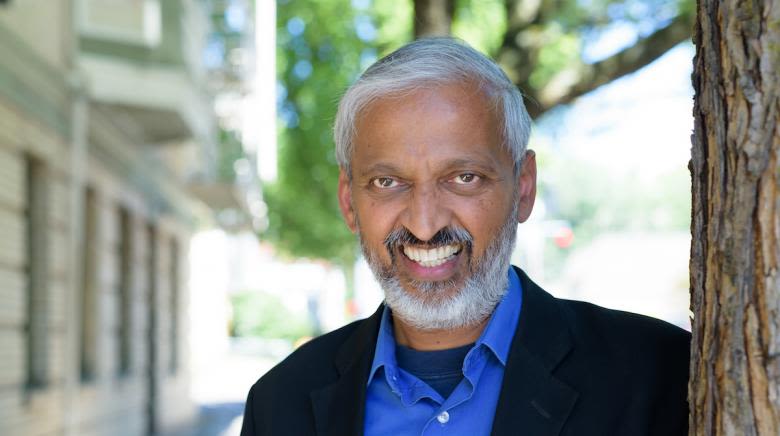
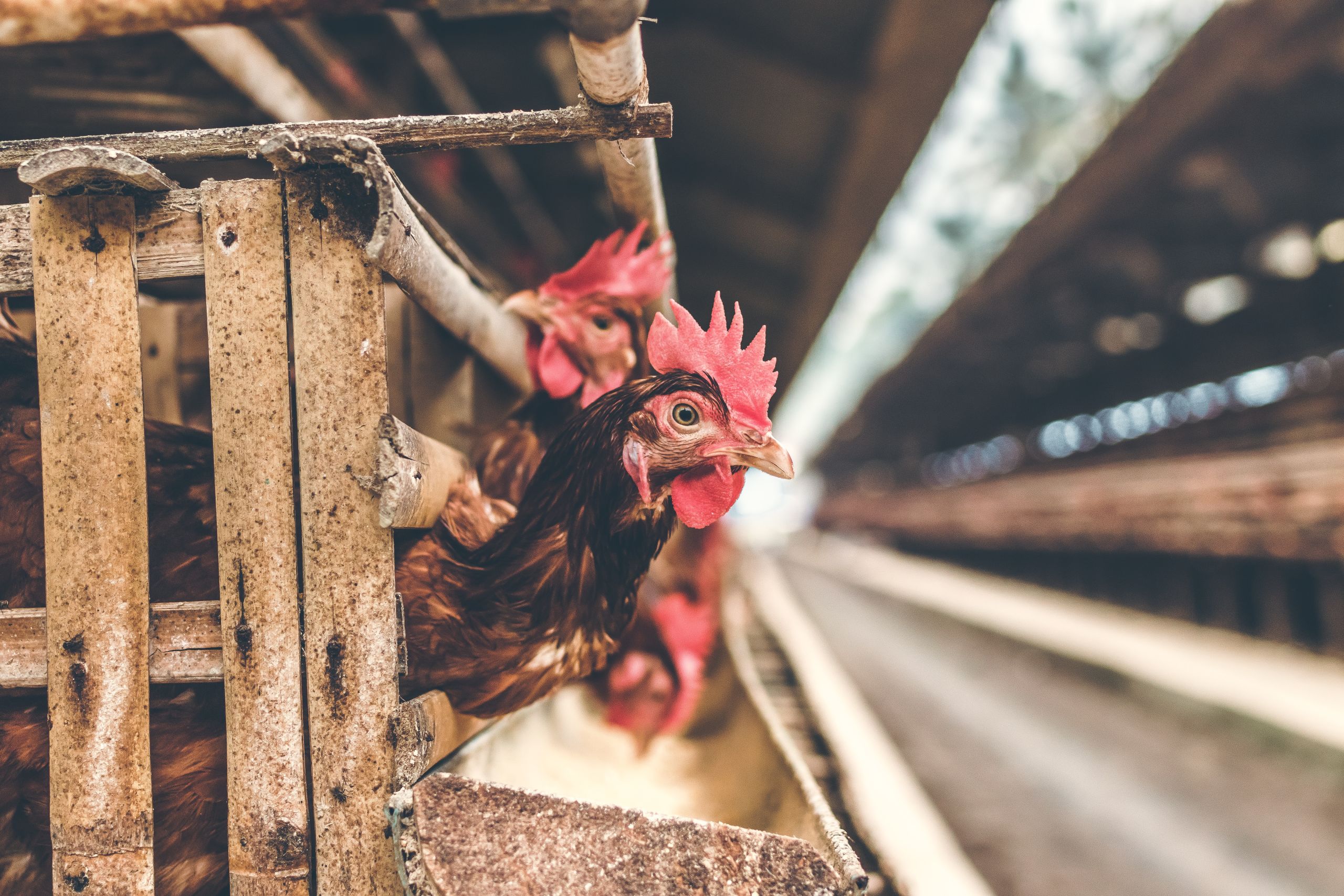
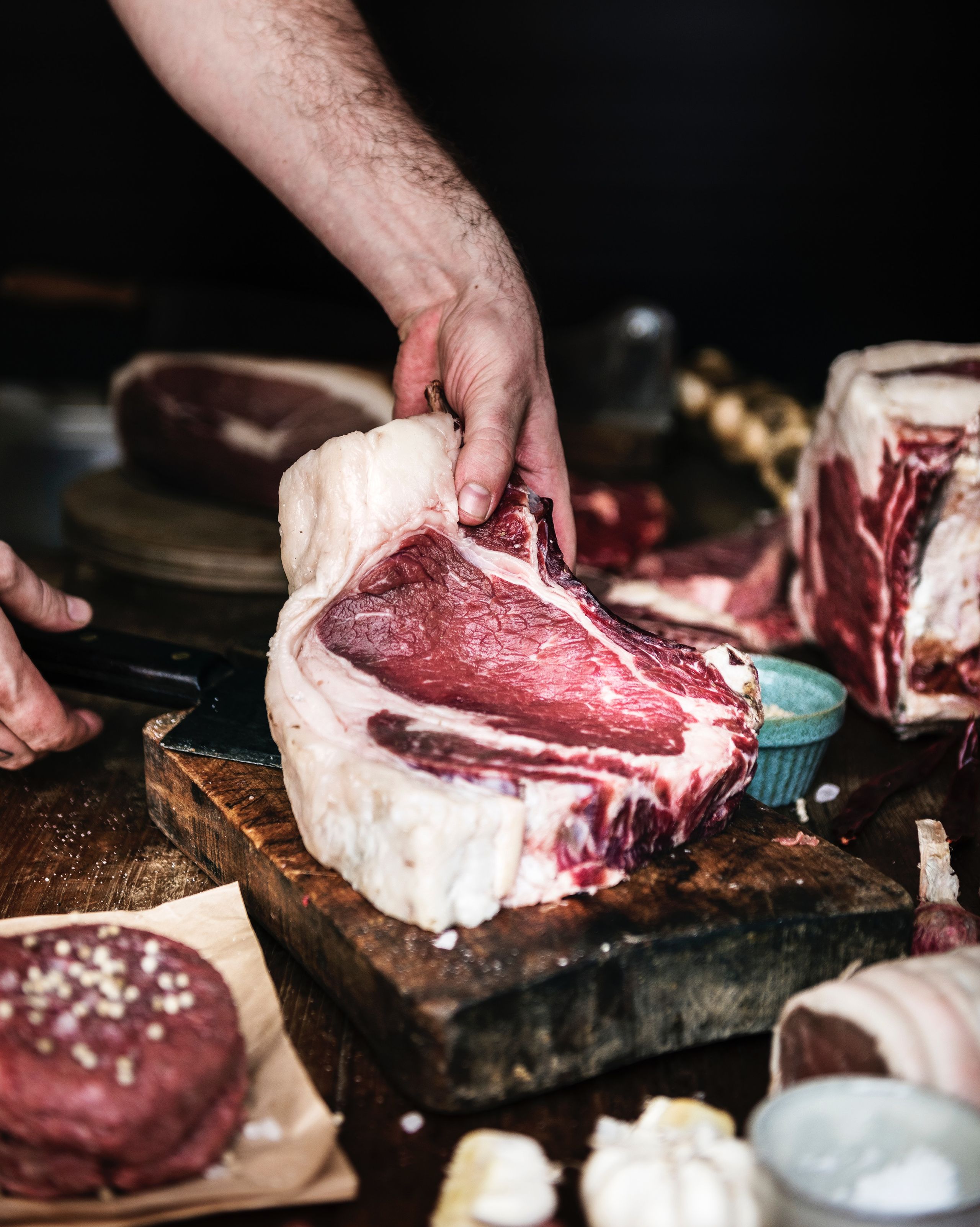
Pigs raised for pork spend their whole lives in gestation crates unable to move, having litter after litter until they become spent and are sent to slaughter, Pigs have been proven to be smarter than chimpanzees and have the cognitive ability of three-year-old children which makes them highly aware through this whole process.
Female cows are forcibly impregnated repeatedly and after carrying their babies for nine months have them taken away so that humans can drink the milk meant for their young, the male calves are sent to slaughter for veal meat. Cows are social animals and mourn for their children for long periods of time after they are taken away.
Chickens are usually given steroids to grow at an abnormal rate and forced to lay 250-300 eggs a year (as opposed to 10-15 naturally). All male chicks are ground up or buried alive because they serve no purpose.
Not to mention Fish – who are the most abused out of all living creatures. We kill 1-3 trillion fish and sea-life each year.
“Contrary to some people’s opinions, recent research shows that fish do feel pain, have good memories, live in complex social communities, can recognise themselves and others and show signs of cooperation and reconciliation” said Dr Butler.
It is the stuff of horror movies and yet this is only a fraction of the truth. Why are we so determined to turn a blind eye to the suffering?
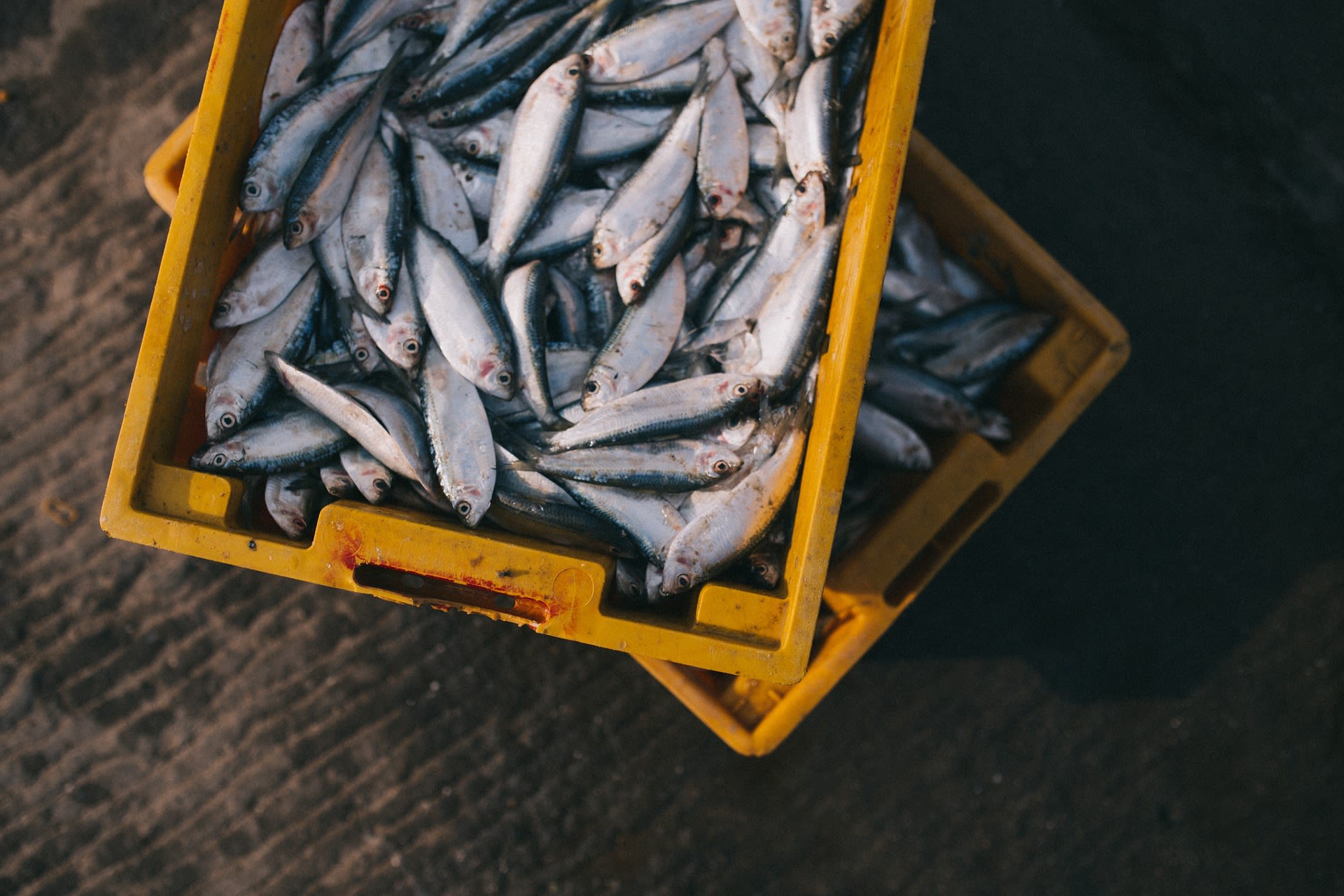
According to Dominika Piasecka PR and Media Officer at The Vegan Society, it all comes down to Speciesism – the idea that we value some lives over other based on societal conditioning. We favour certain animals because they are pets and are abhorred when we see any harm done to them (ie Yulin Dog Festival) yet turn a blind eye to the suffering of other species because they aren't pets or aren't as attractive.
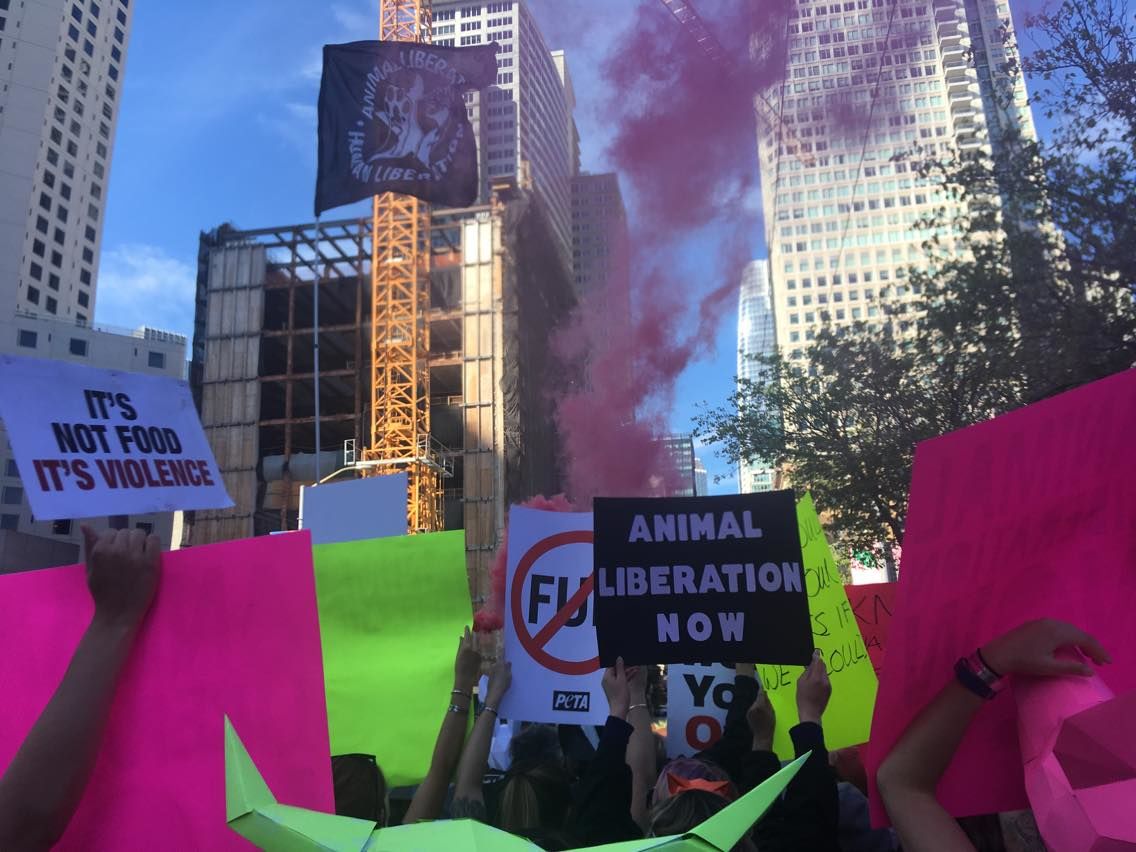
Animal Liberation March, London 2018 Credit: Sarah Emily Johnson
Animal Liberation March, London 2018 Credit: Sarah Emily Johnson
“It’s crazy to think you can go to prison for killing a dog but get paid for killing a pig!! Most people already believe that harming animals is wrong, so in their hearts they are already vegan. Veganism is simply living in line with those beliefs. I personally went vegan because I couldn’t stand the fact that I was eating someone who had a terrible life locked up in a cage, born just so that they can be killed. I don’t want to contribute to anyones suffering, whether directly or indirectly. Everyone says they love animals, but they say that with the same mouth they use to eat them.”
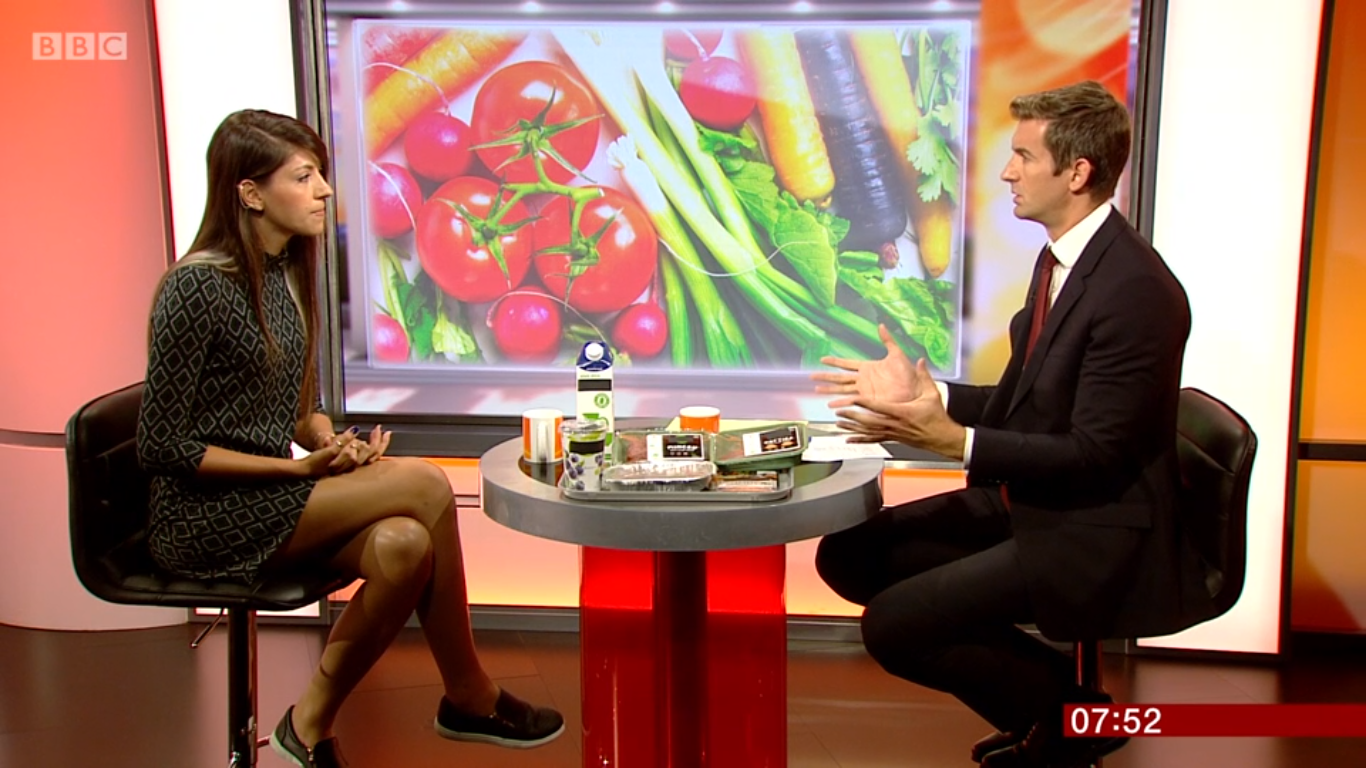
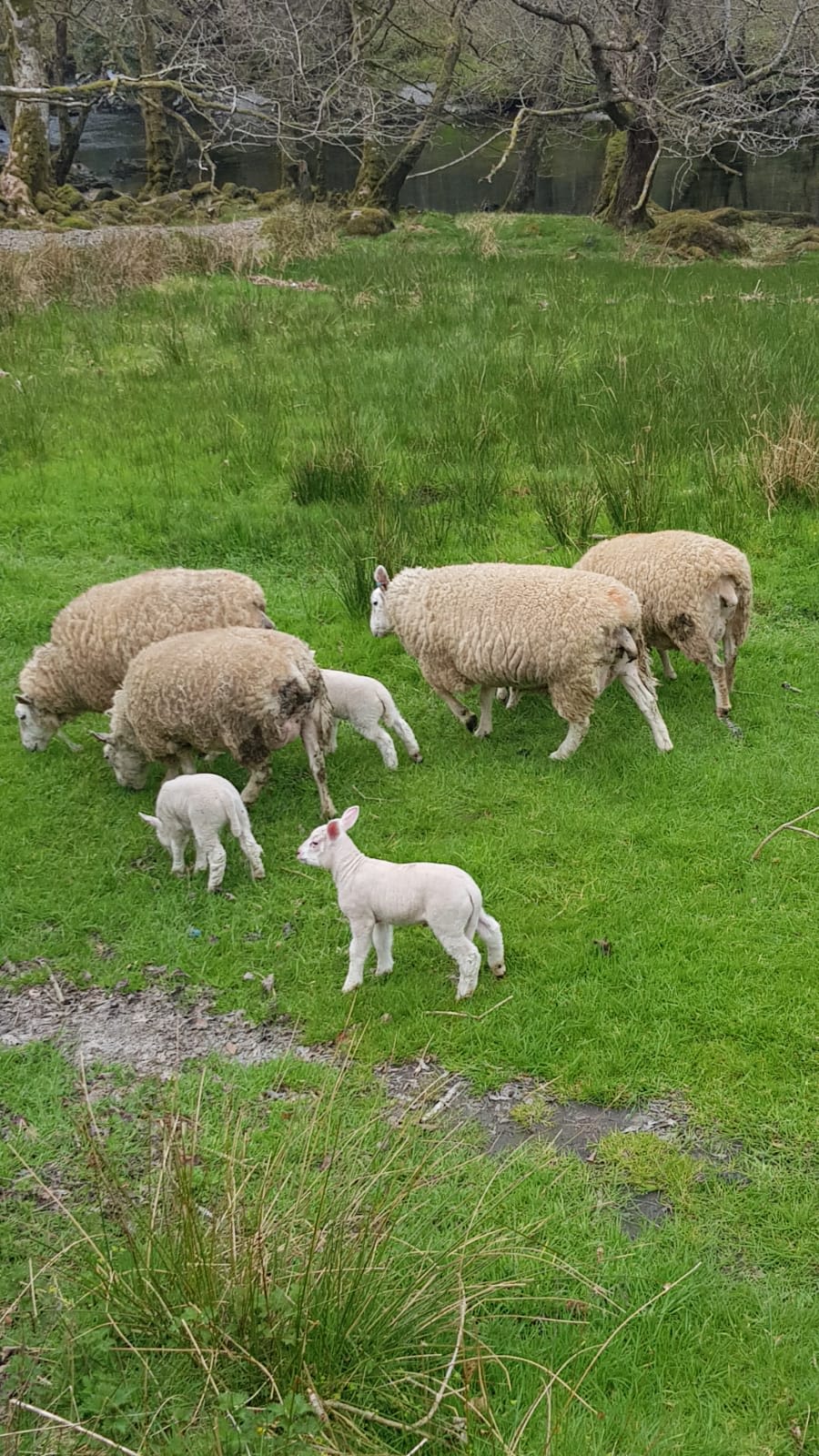
Sheep with Spring Lambs. Many lambs are slaughtered at just 6 month old. IMAGE CREDIT: Scott Kennedy
Sheep with Spring Lambs. Many lambs are slaughtered at just 6 month old. IMAGE CREDIT: Scott Kennedy
Dr Oppenlander says we all are to blame for the state of the planet: “We are all responsible for our ecological footprint, individually and collectively. We humans are the stewards of our planet and for future generations of all species including our own. We have a duty to foster awareness and influence others as to the positive aspects of a fully plant-based lifestyle”
Dominika adds: “Some people go vegan overnight, for others it’s a longer journey compromising a number of steps. If you slip up don’t worry, just keep going!”
If you need help to go Vegan download The Vegan Society App VeGuide

